It’s generally not a good practice, I’ll admit, to slam a movie before you’ve seen it. It’s unfair to the filmmakers, and it’s typically a lazy response on the part of the “reviewer.” However, I’m making an exception in this one case. And I promise to revisit this post and my opinion once I have actually seen the film (although I’ll probably wait to get it on Netflix).
The film in question is Brazilian director Walter Salles’ adaptation of Jack Kerouac’s On the Road. I’ve been waiting a quarter century for this book to finally hit the screen. Lots and lots of folks have been waiting a good deal longer than that. So I was a happy lad indeed this morning when I read this headline on Google News:
Kerouac’s On the Road Hits Screen in Cannes Debut
I grew progressively unhappier as I read through the article, though. Walter Salles is best known for an earlier “road movie” he directed, The Motorcycle Diaries. Generally well received by critics for its acting and cinematography, this was a hagiographic portrait of Ernesto “Che” Guevara’s youthful, pre-revolutionary days. Okay… given that this film was pretty much a Valentine to the cult of a charismatic man who went on to help establish an oppressive dictatorship and police state, I figured that Salles is a man of the hard left; not an unusual status for a film maker. His cinematic chops appeared to be in order, however, particularly for a story such as On the Road‘s, which calls for a deft hand with montage. I was willing to give him the benefit of the doubt, to hope that he would accurately reflect the novel’s spirit and would not trowel on an overlay, utterly alien to the novel and to Kerouac’s outlook, of anti-American propaganda.
Well, my optimism lasted all of about fifteen seconds. Until I reached these quotes in the article:
“‘It’s about the loss of innocence, it’s about the search for that last frontier they’ll never find,’ Salles told reporters in Cannes. ‘It’s about also discovering that this is the end of the road and the end of the American dream.'”
May I congratulate you, Mr. Salles, on your spectacularly inaccurate take on your source material? “The end of the road?” “The end of the American dream?” What book did you read, sir? On the Road is about nothing of this sort. What makes Kerouac’s novel so enduring and memorable, more than just a period-piece curiosity or icon of Beat Generation kitsch (as some of its contemporary critics attempted to tar it), is its author’s genuine, ecstatic, and often grandly (or humorously) poetic love for America, for the country’s vastness and richness and strangeness, for the dignity and energy and humor of even its poorest outcasts and hoboes. Kerouac and his novel are in love with jazz and the common man’s automobile, and in love with the country that gave birth to both of those phenomena.
On the Road is not Howl. Kerouac’s novel and Allen Ginsberg’s poem should be seen as the yin and yang of the Beat outlook. Howl, of course, provides an outlook more convivial to the worldview of a film maker such as Mr. Salles. In On the Road, Kerouac portrays his friend Ginsberg as Carlo Marx. From what I can read into another snippet from the article, it appears Mr. Salles has likely upgraded Carlo Marx’s significance in the story:
“Salles’ camera captures America’s vastness – and the promise of something new around the corner – from the lights of New York to the hills of San Francisco and the long expanse of flat road and endless sky in between.
“But as the sun fades on the brief and bright explosion of the characters’ lives, age and responsibility intrude.
“‘This high we’re on is a mirage,’ character Carlo Marx tells Paradise and Moriarty.”
And that one line of dialogue, right there, gives the game away. It is not a line of dialogue from the book. Mr. Salles has added it; I can only presume in order to reinforce his adaptation’s ideological overlay. I fully expect Carlo Marx to end up being the true “hero” of the film, saying many pithy things about the hidden, rotten core of America (pithy statements which will have been creations of the screenwriter’s, not of Jack Kerouac’s).
Those familiar with Jack Kerouac’s biography know that he and Allen Ginsberg suffered a painful falling out during the 1960s, when Kerouac found himself unable to stomach Ginsberg’s high-profile association with elements of the anti-American left. Ginsberg’s political views, to put it mildly, were not those of Jack Kerouac. They are, however, those of Walter Salles.
If Mr. Salles had wished to make a movie with the sort of message he prefers, he should have found a way to adapt Howl, not On the Road. That would have been much more honest.

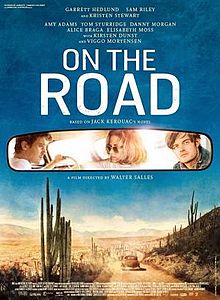
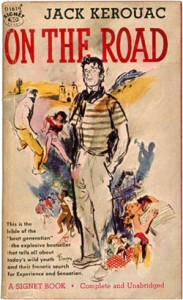
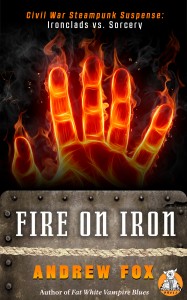
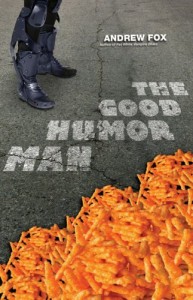
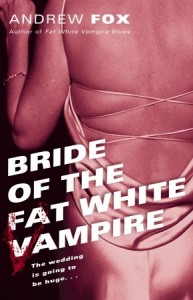
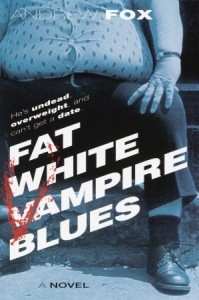
Even politics aside, I saw (and had blissfully forgotten — until now) the trailer for this and felt a thud in the pit of my stomach. I, too, will reserve my comments until I’ve MAYBE seen what they’ve done to one of my all-time favorite… I don’t think calling it a “book” or epochs in literature could sum up the profound influence this work has had on my life… but I have a feeling this film will come and go and be forgotten. The book, however, even now, 55 years later, is going strong as ever.